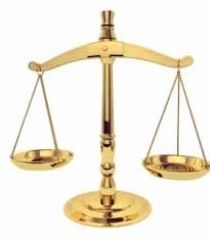191.5 Motion to Remand
Motion To Remand
A party seeking to oppose removal of a claim or cause of action pursuant to 28 U.S.C. §1452(a) may file a motion to remand in the bankruptcy court.1.
As provided in Bankruptcy Rule 9027(d), a motion to remand will be governed by Bankruptcy Rule 9014 and must be served on the parties to the removed claim or cause of action.
To be safe, a party seeking remand should file its motion to remand within 30 days after the date of filing of the notice of removal. ,A motion to remand on the basis of lack of subject matter jurisdiction does not have a 30-day time limitation. See 28 U.S.C. §1447(c), Things Remembered, Inc. v. Petrarca, 516 U.S. 124, 128 n.3 (1995) ,A number of courts have concluded that the 30-day time limitation in §1447(c) does not apply to motions to remand where the removal was brought pursuant to 28 U.S.C. §1452(a) See .In re Hotel Mt. Lassen, Inc., 207 E.R. 935 (Bankr. E.D. Cal. 1997), In re Ciclon Negro, Inc., 260 E.R. 832 (Bankr. S.D. Tex. 2001), Unico Holdings, Inc. v. Nutramax Products, Inc., 264 E.R. 779 (Bankr. S.D. Fla. 2001)
In addition to motions to remand based upon lack of subject matter jurisdiction, the bankruptcy court may remand a claim or cause of action ''on any equitable ground.'' 28 U.S.C. §1452(b).
An order pursuant to §1452(b) remanding a claim or cause of action, or a decision pursuant to §1452(b) not to remand, is not reviewable by appeal or otherwise by the United States Court of Appeals for the Fourth Circuit or the United States Supreme Court. 28 U.S.C. §1452(b). Such an order may, however, be reviewed on appeal by the United States District Court.
Pursuant to 28 U.S.C. §1447(c), a motion to remand a case removed from State court pursuant to 28 U.S.C. §1441(a) on the basis of any defect other than lack of subject matter jurisdiction must be filed within 30 days after the filing of the notice of removal. In addition, §1447(c) also provides that an order remanding a case may require payment of just costs and any actual expenses, including attorney fees, incurred as a result of the removal.
28 U.S.C. §1447(c) provides as follows:
(c) A motion to remand the case on the basis of any defect other than lack of subject matter jurisdiction must be made within thirty days after the
filing of the notice of removal under section 1446(a).
If at any time before final judgment it appears that the district court lacks subject matter jurisdiction, the case shall be remanded. An order remanding the case may require payment of just costs and any actual
expenses, including attorney fees, incurred as a result of the removal. A certified copy of the order of remand shall be mailed by the clerk to the clerk of the State court. The State court may thereupon proceed with such case.
With respect to removals pursuant to 28 U.S.C. §1441(a),§1447(d) provides that an order remanding a case to state court is not reviewable on appeal or otherwise. Note that this provision, unlike §1452(b), does not mention a decision not to remand a case. See Things Remembered, Inc. v. Petrarca, 516 U.S. 124, 127-28 (1995).
7 To the extent that federal jurisdiction is asserted under 28 U.S.C. § 1334, the court may be required to abstain or abstain on a discretionary basis, and remand the action. See 28 U.S.C. §1334(c)
Any party may file in the bankruptcy court a motion requesting that the district court withdraw the reference of jurisdiction from the bankruptcy court. See 28 U.S.C. §157(d) ,After a response is filed, or expiration of the time for response (14 days plus 3 days if the motion is served by mail), the clerk of the bankruptcy court will transmit the motion and any response to the district court for decision.


















